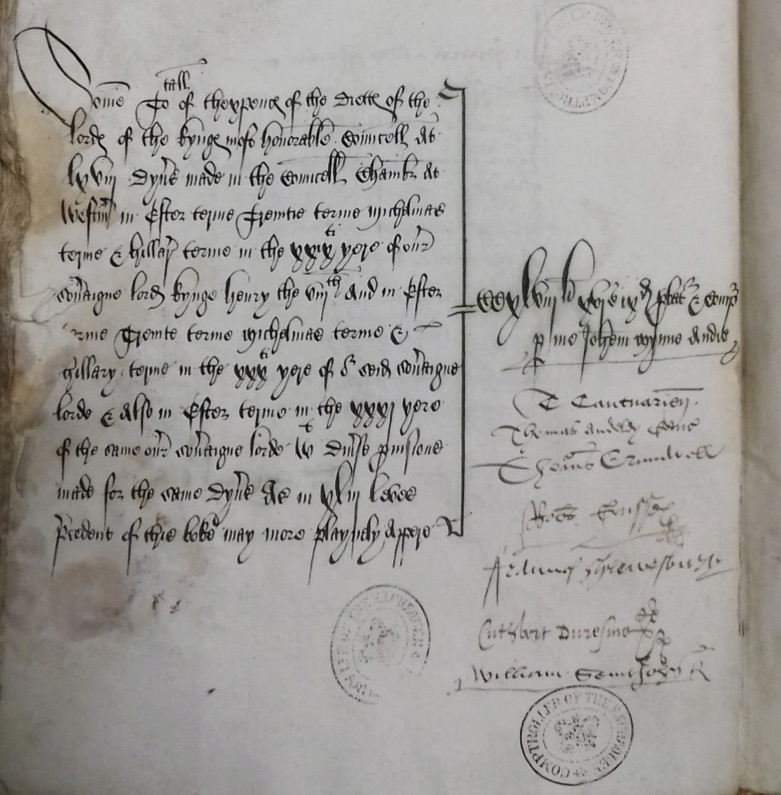I’m going to wander away slightly from the Durham library this week and look at a wonderful set of records from London’s National Archives. Despite the distance to London (it could take a week or more on horseback), Durham’s bishop Cuthbert Tunstall spent quite a lot of the 1530s and 1540s travelling back and forth to attend council meetings or other important events in the south, such as the arrival in England of Henry VIII’s fourth wife, Anne of Cleves in December 1539. The travel must have been pretty tiring. Fortunately for him when he arrived in London though, the councillors had quite a few perks, including their own team of cooks headed by John Lawrence. Lawrence and his servants cooked for the council for over twenty years.
A couple of weeks ago, for #ediblearchives on Twitter, Dr Sean Cunningham of the National Archives shared some pictures of the bills for the lavish meals the councillors enjoyed.

For example, Lawrence bought and presumably cooked seventeen types of meat and birds on 5 December 1542 alone. The annual bill for the council’s food in 1538-9 clocked in at just over £248, which Tunstall and other councillors signed off on. They were less frugal in 1542-44, when the total bill for two years came to just over £577. In contrast the head cook received just 2 shillings and fourpence a day. That’s a lot of expensive food and wine!
These accounts are a lovely reminder that the council, ‘the kynges most honorable Councell’, did not just meet to argue about all of the business of the day from problematic court cases to petitions as well as border defences and Reformation policy, they also dined together. You have Thomas Cromwell, agressively anti-Catholic, signing accounts alongside the extremely conservative Stephen Gardiner, bishop of Winchester and Tunstall himself. Henry’s council was often carefully balanced between conservatives and ardent reformers with very different ideas about what should be done. I do wonder if the lavish meals in part helped to keep the peace between them. It’s quite hard to have a shouting match while you’re all trying to eat lunch!

